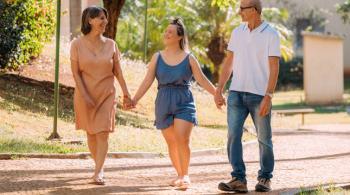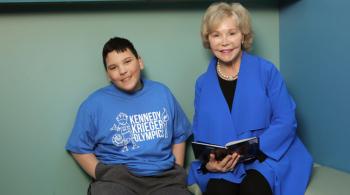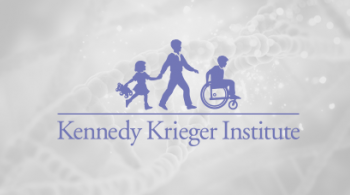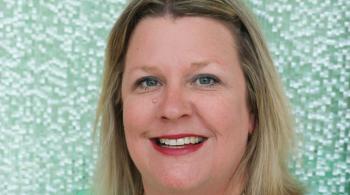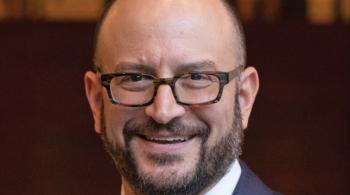On March 7, while attending the 22nd annual Council of Parent Attorneys and Advocates (COPAA) Conference, held in Baltimore, Maureen van Stone, Esq., MS, director of the Maryland Center for Developmental Disabilities (MCDD), and Mallory Finn, Esq., and Alyssa Thorn, Esq., staff attorneys for Project HEAL (Health, Education, Advocacy, and Law), presented “Bringing Legislation on Cameras in Classrooms into Focus.”
On April 14, Finn and Thorn presented a webinar, “Transition Planning for Students with Disabilities,” to the Horizons Clinic in the Center for Child and Family Traumatic Stress at Kennedy Krieger Institute.
On May 7, Mirian Ofonedu, PhD, LCSW-C, MCDD director of training, facilitated the MCDD’s first Faith Leaders Forum. More than 30 faith-based community leaders from across Maryland engaged in a real-time, interactive, virtual learning collaborative to increase their awareness of the challenges faced by individuals with intellectual and developmental disabilities (IDD) and mental illness. The forum was followed by a panel discussion that included parents of children with disabilities and mental health issues, individuals with disabilities, and faith community leaders. Panel participants shared their experiences engaging with their faith communities and their efforts to create a more inclusive community. Crystal Stephens, a member of People On the Go Maryland (POG), and Tami Goldsmith, self-advocacy program coordinator for POG, were panel participants.
On May 22, van Stone, Finn and Thorn presented a webinar, “Special Education Law During the COVID-19 School Closures,” to Kennedy Krieger faculty members, staff members and trainees.
On May 26, Finn and Thorn presented a webinar, “Disproportionate Discipline Practices in Maryland,” to Kennedy Krieger’s Behavioral Psychology Department.
On June 2, Megan Meck, MCDD data coordinator, was named Project SEARCH Team Member of the Year at the Project SEARCH at Kennedy Krieger Institute graduation ceremony, which was held virtually. Meck sits on the program’s steering committee, and also designed, developed and helps manage the program’s database.
On June 3, Finn presented a webinar, “Special Education Law During the COVID-19 School Closures,” to Project ECHO (Extension for Community Healthcare Outcomes).
On June 5, Dr. Ofonedu moderated a special presentation, “How Policies Affect Families Around COVID-19 and How You Can Help,” for members of the American Psychological Association’s Division 37, the Society for Child and Family Policy and Practice. This presentation launched Division 37’s new Diverse, Racial, Ethnic and Multicultural Special Interest Group (DREAM SIG). Anita Thomas, PhD, past president of Division 37 and executive vice president and provost at St. Catherine University, discussed the importance of advocating for policies that support families from underrepresented, diverse populations. Dr. Ofonedu also outlined the future initiatives of the DREAM SIG.
On June 5, van Stone facilitated the American Academy of Developmental Medicine and Dentistry’s opening plenary and breakout sessions on the virtual Center for Dignity in Healthcare for People with Disabilities.
On June 8, van Stone, Finn and Thorn presented a webinar, “Special Education Law During the COVID-19 School Closures,” to Kennedy Krieger families.
On June 9, the MCDD’s 2020 Summer Learning Series kicked off with its first session, “Grief and Loss: Guiding and Supporting Individuals with Intellectual, Developmental and Other Disabilities Through the Experience.” All Summer Learning Series courses have been converted to live, interactive virtual training sessions via Zoom. Dr. Ofonedu and Tracee Hutt-Brown, MSW, LCSW-C, a licensed clinical social worker at Kennedy Krieger, presented on grief and loss experiences for people with and without developmental disabilities, and identified effective strategies for guiding and supporting individuals experiencing grief and loss, including individuals with IDD and other disabilities.
On June 10, Goldsmith and Ken Capone, program director of POG, gave a presentation on support advocacy in the COVID-19 pandemic to 58 developmental disability council directors during the directors’ national weekly call.
On June 12, Mat Rice, public policy advocate for POG, was a panel member for an online MCH-LEARN (Maternal Child Health-Leadership Education, Advocacy, and Research Network) Fabulous Fridays presentation, “Making Policy,” for trainees of Kennedy Krieger’s Center for Diversity in Public Health Leadership Training.
On June 12, Dr. Ofonedu hosted the second Summer Learning Series session, “Walking the Red: Working with Urban Native Americans.” Dustin Richardson, LCPC, who works with Native American Lifelines, talked about Native Americans who live in urban areas and described the rates of trauma, alcoholism, substance use and mental health disorders within this community. Participants learned how to use effective treatment models and resources in the community when working with Native American clients.
On June 17, van Stone hosted a professional webinar for clinicians at Kennedy Krieger’s Center for Child and Family Traumatic Stress about working with a child’s best interest attorney. More than 30 clinicians joined the webinar.
On June 22, van Stone hosted a webinar, “Disability Discrimination and Discrimination Remedies,” for the seven Maryland Centers for Independent Living. More than 35 people participated.
On June 23, Dr. Ofonedu directed “Promoting Positive Mental Health Outcomes for Black Youth: How School, Home and Community Members Can Help” as part of the Summer Learning Series. Dr. Ofonedu hosted a similar training session on June 29, sponsored by Maryland’s Suicide Prevention and Early Intervention Network (MD-SPIN). In both sessions, participants learned about the critical role that providers and community members play in promoting positive mental health outcomes for youth of color. Dr. Ofonedu described ways in which Black youth are at a disadvantage in various aspects of life, including social, legal and health. Participants learned effective strategies to promote positive mental health outcomes for youth of color.
On June 30, MD-SPIN sponsored a training session, “Grief and Loss: Guiding and Supporting Individuals with Intellectual and Developmental Disabilities through the Experience.” Participants gained knowledge about grief and loss experiences for people with and without developmental disabilities. Dr. Ofonedu taught participants effective strategies for guiding and supporting individuals experiencing grief and loss, including individuals with IDD and other disabilities.
On July 9, MCDD presented the “Beyond Physical Inclusion: Strategies for Supporting Full Participation of People With Disabilities in Schools, Organizations and Communities" Summer Learning Series session. Guest presenters included Amie Lulinski, PhD, FAAIDD, and Rebecca Marsh, EdD. Participants learned ways in which systemic collaboration helps in strategizing change in intervention development, implementation and service delivery, and effective strategies for facilitating the social inclusion and full participation of people with IDD and other disabilities in schools, organizations and the community.
On July 14, Natasha Ludwig, PhD, and Rowena Ng, PhD, conducted a Summer Learning Series session, “Understanding Neuropsychological Assessment and Developmental Disorders: Assessment and Treatment Considerations.” Dr. Ofonedu invited them to provide an overview of what neuropsychological assessment is and the principles that guide it. Participants learned how to utilize practical treatment considerations when customizing interventions to address the everyday concerns and questions of individuals and their families.
On July 16, as part of the Summer Learning Series, guest speaker Daniel Dodgen, PhD, described some of the threats of today’s world with an emphasis on their impact on children. Participants learned how to apply community-based strategies to improve preparedness, response and recovery to protect children and the community, especially those with special healthcare needs and disabilities.
On July 23, Dr. Ofonedu, Lori Markland and Denise Barton Schuler of the Maryland Technology Assistance Program (MDTAP) conducted a virtual tour of the MDTAP Library to educate participants on some of the newest assistive technology (AT) on the market. Attendees also learned about financial loan programs, the loan application process, available AT program resources and how to best advocate for their use at home, school and agencies, and in the community.
On July 28, as part of the Summer Learning Series, Alia Dommestrup, PhD, BCBA-D, and Ashley Murphy, PhD, BCBA, gave an introductory overview of the basic theory of applied behavior analysis (ABA) as it pertains to teaching new behavior and reducing problem behavior for children with IDD. Participants also learned key educational strategies for working with children with disabilities.
On July 30, Dr. Ofonedu conducted the season’s final Summer Learning Series session, “Being the Best Advocate for Your Child at School and in the Community,” a workshop for parents. Participants explored strategies for effectively working with school staff members to meet their child’s support needs. Dr. Ofonedu introduced important topics regarding children’s social, emotional and behavioral health, and when to be concerned. Participants also learned about available intervention resources at school and in the community.


